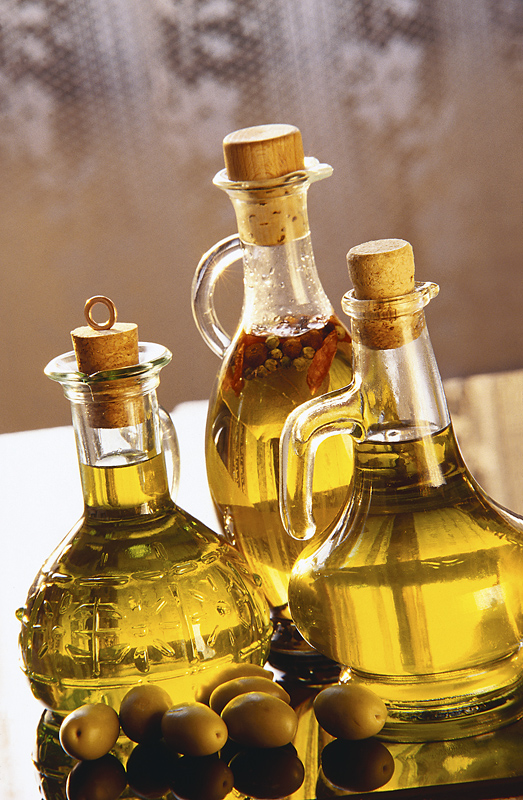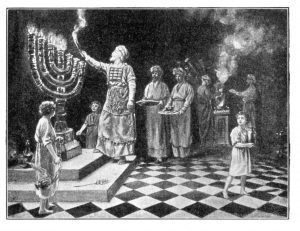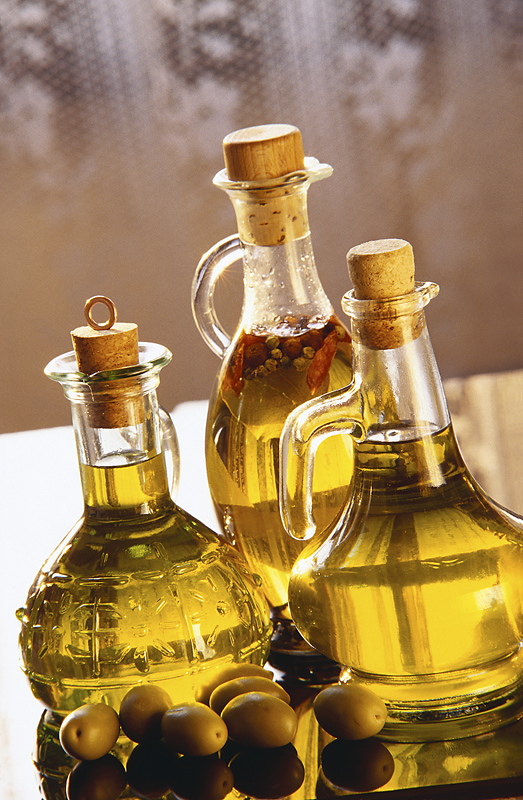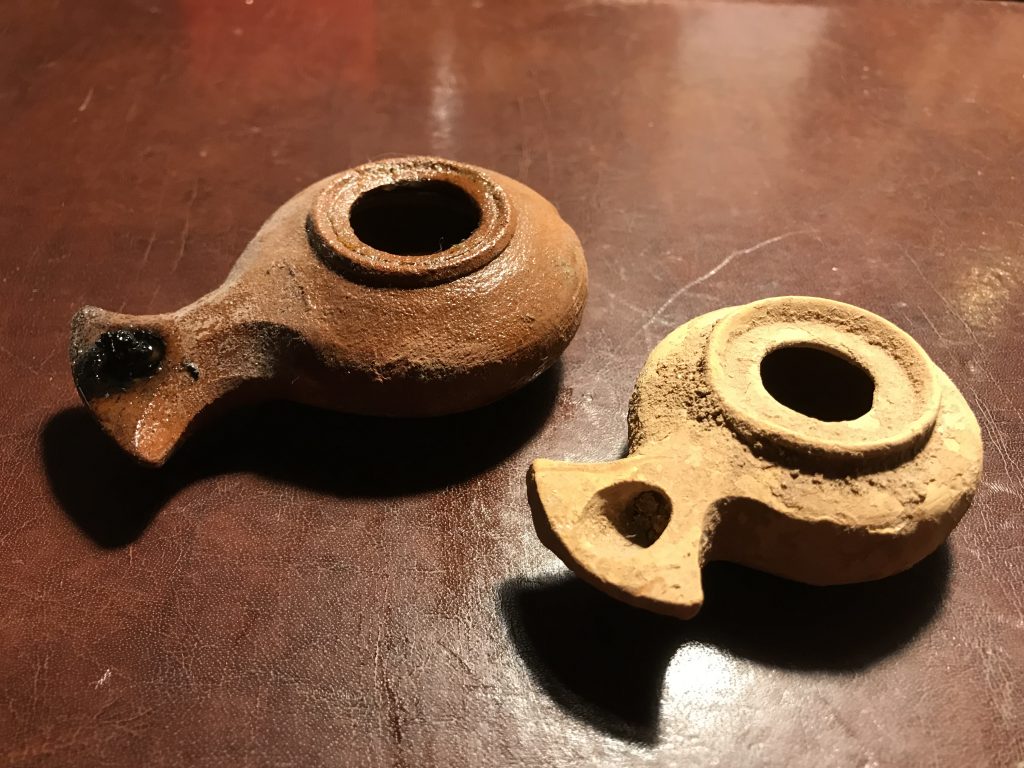
Exodus 27:20, Pure oil of pressed [or beaten] olives.
The Making of Pure Olive Oil , the Menorah and the Believer’s Life
Let’s discuss how this pure olive oil prepared, and how this a picture of the redeemed believer. This is an enlightening subject!
Olive oil is made by crushing and pressing ripe olives. Whole olive fruit consists of 10 to 40 percent oil, and the fruit pulp is 60 to 80 percent oil. Producers use hydraulic presses to squeeze the oil out of the fruit under low pressure. This technique, called cold pressing, generates little heat, and so the oil retains its flavor, color, and nutritional value.
Cold-pressing commonly is carried out in several stages, with only some of the oil being extracted at each stage. The process remains basically the same throughout, but the quality of the oil declines with each pressing. In most cases, olives are cold-pressed at 40 °F (4 °C).
The first pressing gives the highest quality oil, which is usually called virgin olive oil. Virgin olive oil is more expensive than other vegetable oils, so it often is considered a gourmet item. The lower-quality oils from later pressings are often blended in small amounts with such refined oils as soybean or cottonseed oil. Olive oil that comes from the final pressing is inedible. This oil, called olive residue or olive foots, is used in cosmetics, detergents, soap, medicines, and textiles.
The olive fruit may be oval or oblong. As it matures, it turns from green to yellow to red to purple-black. It has a smooth skin, and its flesh surrounds a hard pit. Both the flesh and the seed in the pit contain oil, which makes up 10 to 40 percent of the mature fresh fruit’s weight. Fresh olives contain oleuropein, a bitter substance that makes them unpleasant to eat before processing. During processing, this substance is largely or entirely removed.
The olive tree’s bark and leaves are a soft gray-green, and its trunk becomes gnarled as it ages. Olive trees live longer than most other fruit trees. There are olive trees in Israel that may be more than 2,000 years old.
A mature olive tree may have as many as 500,000 small flowers. Most of the flowers are imperfect, and fruit cannot grow from them. They give off pollen, which is usually carried from flower to flower by the wind. Most varieties of olive trees bear a large crop one season and a small crop the next.
Cultivation of new olive trees occurs through takingcuttings off from an olive tree and rooting them. The trees will grow in many types of soil but need good drainage. To produce large fruit, the grower must irrigate and prune the trees, and thin the fruit. Fertilizers that add nitrogen to the soil can increase yields. The olive tree will grow where the climate is hot and dry. But for bearing good fruit, the tree needs a moderate supply of water. The fruit matures from October to January and is injured if the temperature falls below 26 °F (-3 °C).
Harvesting olives requires careful handling. Olives grown for their oil may be mechanically harvested. Olives grown for eating must be picked by hand. Workers place the fruit in small boxes and haul it to the processing plant.
Most green olives are prepared by the Spanish process. In this process, unripe, yellowish-green olives are placed in lye solution. The lye removes most of the bitter taste of the oleuropein. The olives are washed and then fermented in brine.
Adam Clarke, in his biblical commentary, says regarding Exodus 27:20 that the very ripe and oil-filled olives, after having been picked, when slightly bruised or pressed (before being crushed by mortar stones in a mill) will express the purest, most flavorful and highest quality oil. This oil that flows spontaneously with little or no application of force is called the mother drop.
According to The Stone Edition Chumash, only the purest oil could be used for the lamp (menorah)—the purest of the pure! This was obtained by slightly pressing the very ripe olives, but without crushing them. A minute quantity of oil would be squeezed out—only a drop or so—from each olive. This oil was more pure than any of the other oil subsequently obtained via crushing.
Spiritual Parallels
Continue reading




